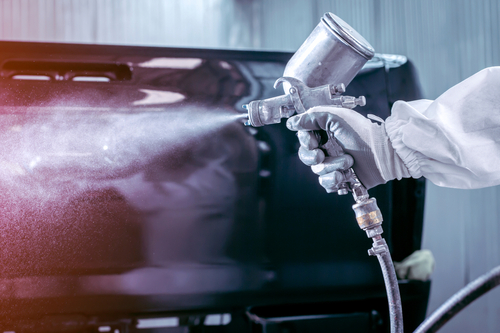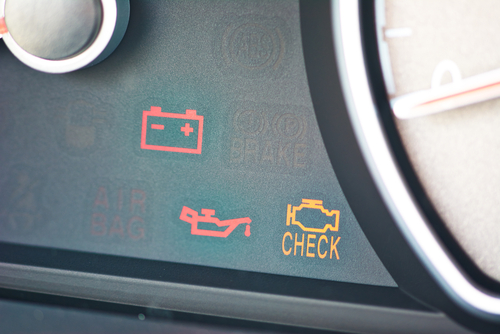
Car Respray Maintenance Tips: Keeping The Shine for Years
November 25, 2023
Preparing Your Car for CNY 2024
January 29, 2024DIY Battery Maintenance: Tips and Safety Precautions

DIY Battery Maintenance Tips and Safety Precautions
DIY Battery Maintenance: Tips and Safety Precautions. Regular battery maintenance is not just a task; it’s an essential part of vehicle care that ensures longevity and reliability.
Embracing DIY battery maintenance can be both cost-effective and deeply satisfying, offering a sense of accomplishment and control over your vehicle’s health.
This guide focuses on the practical steps and safety precautions necessary for effective battery upkeep.
As we explore the nuances of maintaining various types of car batteries commonly used in Singapore, the emphasis will be on performing these tasks safely and efficiently.
Understanding the importance and benefits of regular battery maintenance will help you keep your vehicle in top condition while avoiding unnecessary expenses.
Understanding Your Car Battery
A car battery is a complex yet crucial component of your vehicle. It functions by converting chemical energy into electrical power, thus providing the necessary energy to start your engine and power the vehicle’s electrical systems.
In Singapore, the most prevalent types of car batteries are lead-acid batteries, including maintenance-free and serviceable variants.
Understanding the basic components and functions of your car battery is vital for effective maintenance.
Signs of a failing or underperforming battery include difficulty in starting the engine, dimming headlights, and electrical malfunctions.
Regularly monitoring these indicators can preemptively address potential issues, ensuring that your vehicle remains reliable and efficient.
Preparing for Battery Maintenance
Before embarking on battery maintenance, gathering the necessary tools and equipment is essential. This includes a wrench set, a voltmeter or multimeter, a battery cleaner, and a wire brush.
Safety is paramount, so equip yourself with gloves, safety goggles, and appropriate clothing to guard against corrosive substances.
Preparing your workspace is equally important. Ensure that the area is well-ventilated to dissipate harmful gases emitted by the battery.
Good lighting is crucial for visibility, and a clean, organized workspace will facilitate a smooth maintenance process.
Routine Battery Maintenance Steps
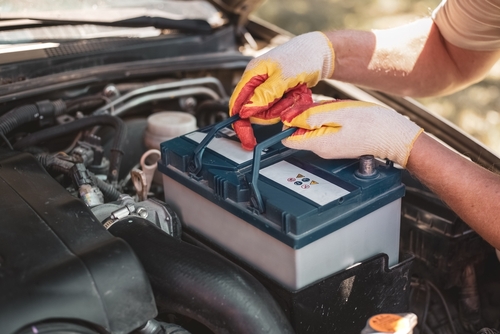
Routine maintenance of your car battery involves several key steps. Firstly, check and clean the battery terminals.
Corrosion at the terminals can lead to poor electrical connectivity, so cleaning them regularly using a wire brush and a specialized battery cleaning solution is important.
Next, inspect the battery case for any signs of damage, such as cracks or leaks, which could indicate a need for replacement.
For non-sealed batteries, maintaining the proper electrolyte levels is crucial. These levels should be checked periodically and topped up with distilled water when necessary. However, avoid overfilling as this can lead to issues.
Testing the battery voltage is another critical step. Use a voltmeter or multimeter to ensure that the battery maintains an adequate charge, typically around 12.6 volts for a fully charged battery.
If the voltage is low, charge the battery using a suitable charger, taking care not to overcharge it, as this can reduce the battery’s lifespan.
Safety Precautions During Maintenance
Handling a car battery requires strict adherence to safety precautions due to the presence of corrosive substances and the risk of electrical short circuits.
Always handle batteries with care, avoiding rough or abrupt movements that might cause spills. In case of acid spills or skin contact, rinse the affected area with plenty of water and seek medical attention if necessary.
A critical safety measure is to disconnect the battery before starting any maintenance work.
This prevents the risk of electrical short circuits, which can cause injuries or damage to the vehicle’s electrical system.
Ensure the engine is off, and remove the negative cable first, followed by the positive cable. This order minimizes the risk of sparking.
When to Seek Professional Help
While many battery maintenance tasks can be done at home, certain issues require professional intervention.
If you encounter complex problems like deep-seated corrosion, internal damage, or persistent charging issues, it’s advisable to seek professional help.
Regular check-ups by a professional can also preempt potential problems. In Singapore, there are numerous reputable automotive service centers capable of providing expert battery maintenance and advice.
Utilizing these services when necessary can save time and ensure that your vehicle remains in optimal condition.
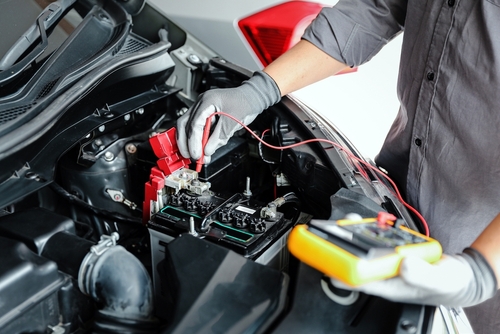
Best Practices for Battery Longevity
To maximize the longevity of your car battery, adopt regular use and proper charging habits. Avoid leaving your vehicle unused for extended periods, as this can lead to battery discharge.
If you do not use your car regularly, consider using a battery maintainer to keep the battery charged.
Avoid practices that shorten battery life, such as frequent short trips that don’t allow the battery to fully charge, and leaving lights or electronics on when the engine is off.
Additionally, extreme temperatures can affect battery performance, so try to park in shaded or covered areas when possible.
Finally, when your battery ends its life, dispose of it responsibly. Many automotive service centers in Singapore offer environmentally friendly battery disposal services, ensuring that the harmful components are dealt with in an eco-friendly manner.
FAQ
Can Extreme Weather Affect My Car Battery’s Performance?
Yes, extreme weather conditions, both hot and cold, can significantly impact your car battery’s performance and lifespan. High temperatures can accelerate battery fluid loss and degradation, while cold weather can reduce its cranking power.
Should I Charge My Battery After Jump-Starting the Car?
After jump-starting your car, it’s advisable to charge the battery fully. This ensures that the battery regains its optimal charge level, which might not be achieved solely through driving.
How Can I Tell If My Battery Is Undercharging?
Signs of undercharging include dim headlights when the engine is idling, the battery taking longer to charge, or the vehicle requiring frequent jump-starts.
Is It Safe to Handle a Swollen Battery?
Handling a swollen battery can be dangerous as it indicates internal damage, possibly leading to leaks of corrosive fluid. If your battery is swollen, it’s best to have it inspected and replaced by a professional.
How Does Frequent Short-Distance Driving Affect My Battery?
Frequent short-distance driving can shorten your battery’s life. Short trips don’t allow the battery to fully charge, leading to a gradual decrease in overall battery capacity and efficiency.
DIY Battery Maintenance: Tips and Safety Precautions – Conclusion
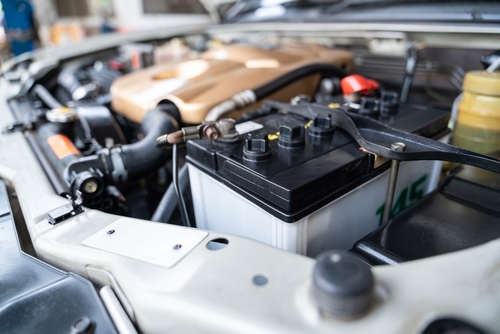
In conclusion, regular DIY battery maintenance is an invaluable practice for any vehicle owner.
It not only enhances the performance and reliability of your car but also provides a sense of empowerment in managing your vehicle’s health.
By adopting safe and effective battery maintenance practices, you can avoid unexpected breakdowns and prolong the life of your battery.
Remember, while DIY maintenance is beneficial, recognizing when to seek professional help is equally important. Embrace these tips and best practices to ensure your vehicle remains a reliable and efficient companion on the road.
Are you seeking a professional and reliable car servicing company in Singapore? Contact us today!


